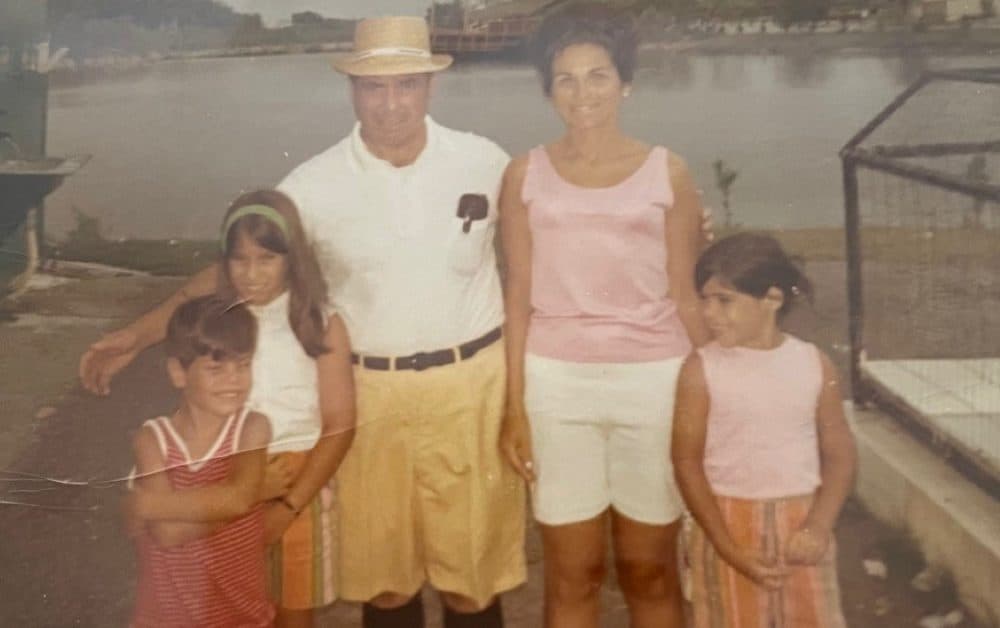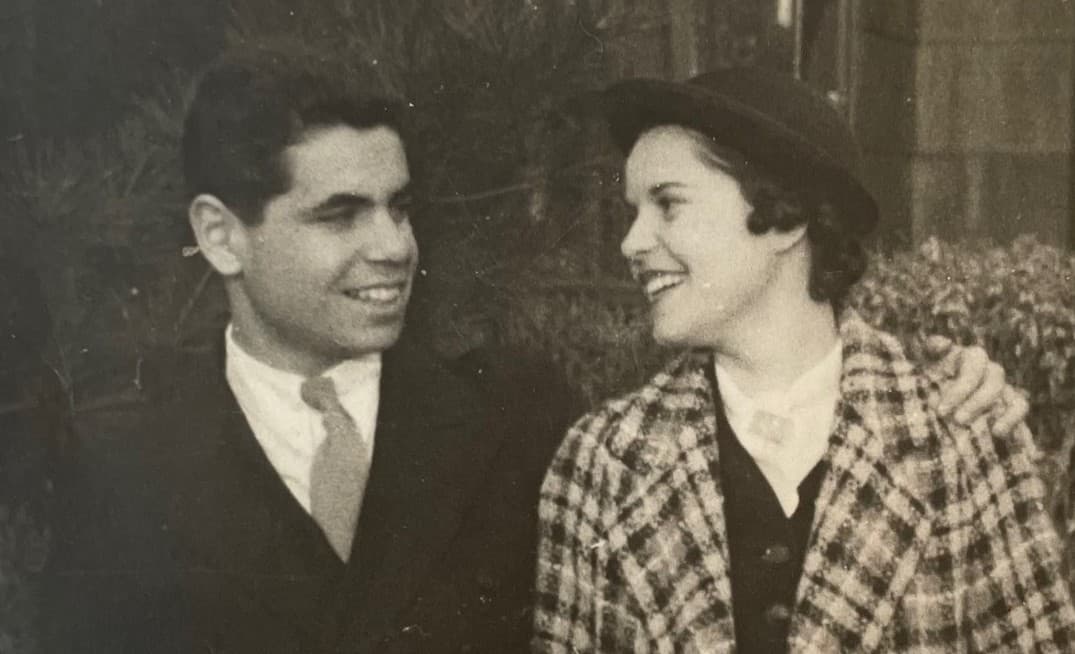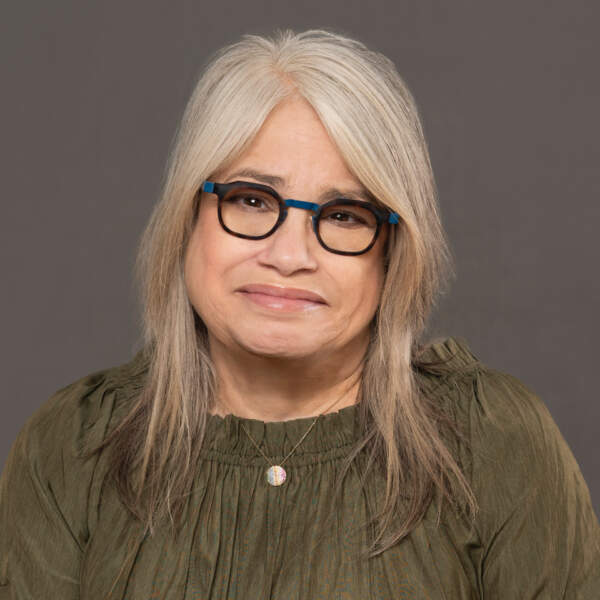Advertisement
Commentary
'His Legacy Was His Patriotism': My Father's American Dream

When I was young, my father’s patriotism felt like the pure patches of sunlight that warmed my back and shoulders in the summer. His America embodied promises that, right or wrong, he believed were delivered. I think a lot about my dad on the Fourth of July — whether his uncomplicated version of this country’s ideals holds up in this time of anti-immigrant sentiment and overall unrest. I speculate that he would have wept with despair.
I think back to how much my father loved celebrating his country on the Fourth of July with the homegrown festivities he orchestrated across the acre of our yard — front and back — that he was proud to own. On those bright holiday mornings, he transformed our corner lot into makeshift parade grounds. It was the 60s, a new-fangled, sometimes bewildering era for a naval intelligence officer who served in the Second World War, a much older dad born when Woodrow Wilson was president. Every year my father arranged for us, his three children, to experience his democracy by giving us flags to wave and marching us around the perimeter of the house. He had created a microcosm of the land of the free.
The John Philip Sousa marches he blasted from tinny speakers he'd propped in a second-floor window set the beat for us. In those days, we three kids resembled my father so much in feature and intent. We were his blessings and his mirrors, and he cherished what we reflected.

Even as a little girl, I intuited that his leading us around the house shored up important moments that he wanted to relive. I now understand that the lull of the Pacific Ocean, the sturdy structure of military life, and the unequivocal certainty that he was on the right side of history had given my father purpose when he was in the Navy. He took every opportunity to celebrate the greatness of his greatest generation.
On the Fourth of July, my father grilled hamburgers and hot dogs in his red, white and blue plaid shorts with a competence he never showed in the kitchen. As he flipped burgers, he hummed Sousa’s music continuously, long after he had turned off the stereo.
On most American holidays, Cuban aunts and uncles and grandparents brought a different slant to my father’s shiny “American as Apple Pie” trope. They came to the backyard with offerings of tostones, corn tamales and arroz con pollo. My father’s iron sternness and flinty American bearing baffled but mostly frightened my Latinx relatives.
I was the girl with the strict, formal father and the young mother with the unmistakable Cuban accent. I was supposed to have a foot in each of my parents’ worlds, yet I often felt that I belonged in neither place. My family's oddness, on all too public display in those backyard scenes, had a soundtrack of clashing languages. There was a buffet of seemingly incompatible food. All of it embarrassed me. Now, after so many years, that life is wonderfully distinctive and wholly mine. And I’m forever grateful.
Advertisement
I was supposed to have a foot in each of my parents’ worlds, yet I often felt that I belonged in neither place.
Not having an obvious place in one culture or the other turned out to be the paradoxical blessing of being my parents’ daughter, the only one of my mother’s children who spoke her language. In those days, there were other paradoxes too. My father, who often bellowed, “English only — speak English” when my relatives’ rapid-fire Spanish overwhelmed him, was yet an admirer of many things Spanish. In the 1950s, a decade before he met my mother, he traveled and worked in Central America. Although it is lost now, I can still flash on a scalloped-edge black and white photograph of my father in Guatemala, wearing billowing khakis and, unbelievably, a pith helmet. In that photo, he was a mystery and a cliché.
Two decades after my father died, both a patterned aerial view of my childhood and a detailed portrait of him have emerged. I’ve braided my curiosity with research. I’ve sat for hours in fluorescent-lit basement libraries to understand the times in which he lived. I’ve sent away for his naval records, which told me about the young officer unsure of how to lead men twice his age. I’ve read about the inexperienced ensign who was often reprimanded for his stubbornness yet received the highest marks for his staunch patriotism. He loved his country fiercely, demonstratively.
The glint of my father’s American dream sparkled in his peripheral vision until the day he died. His legacy was his patriotism. And the truest and most certain thing I know about him is that patriotism was an inextricable part of him. It was embedded in the optimism that guided him in the most tumultuous of times.
On this Fourth of July, I yearn for his sweet vision, and cherish his memory.
